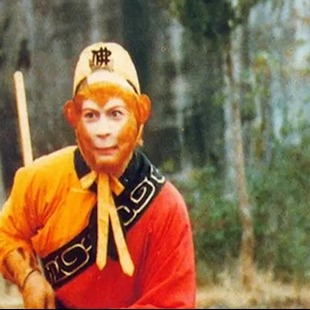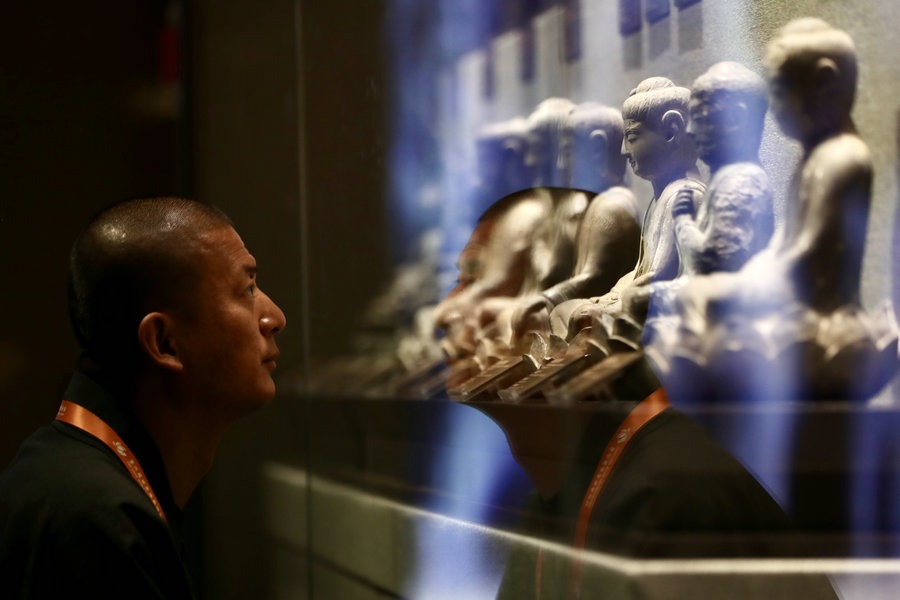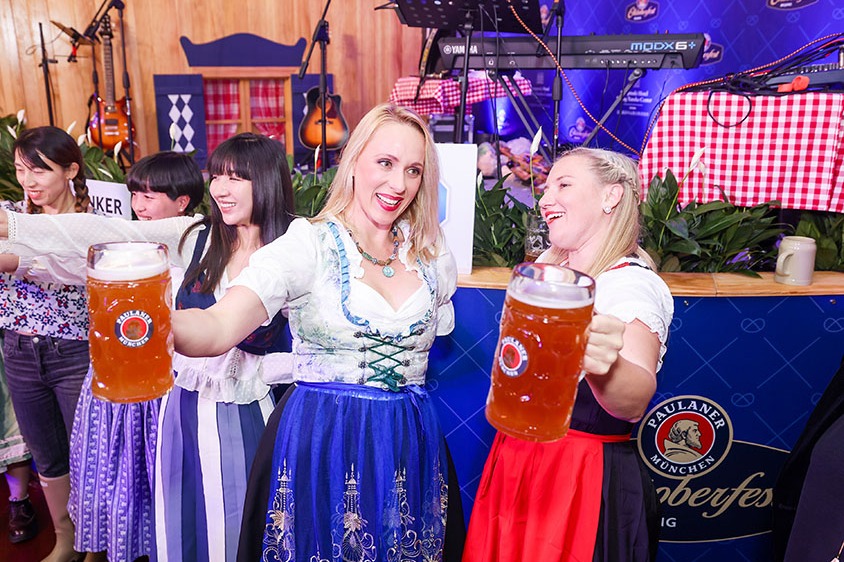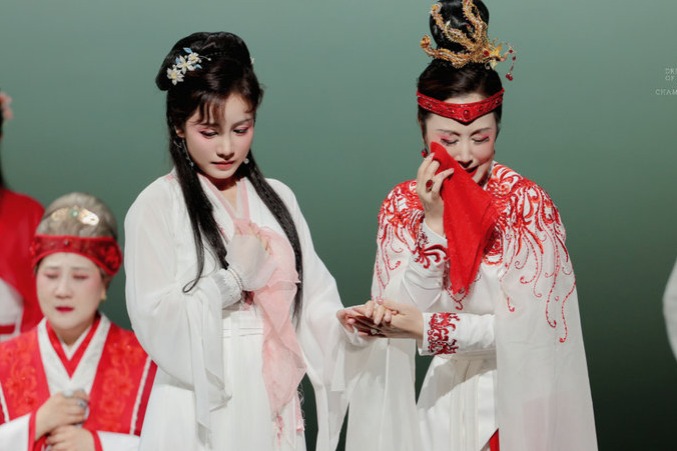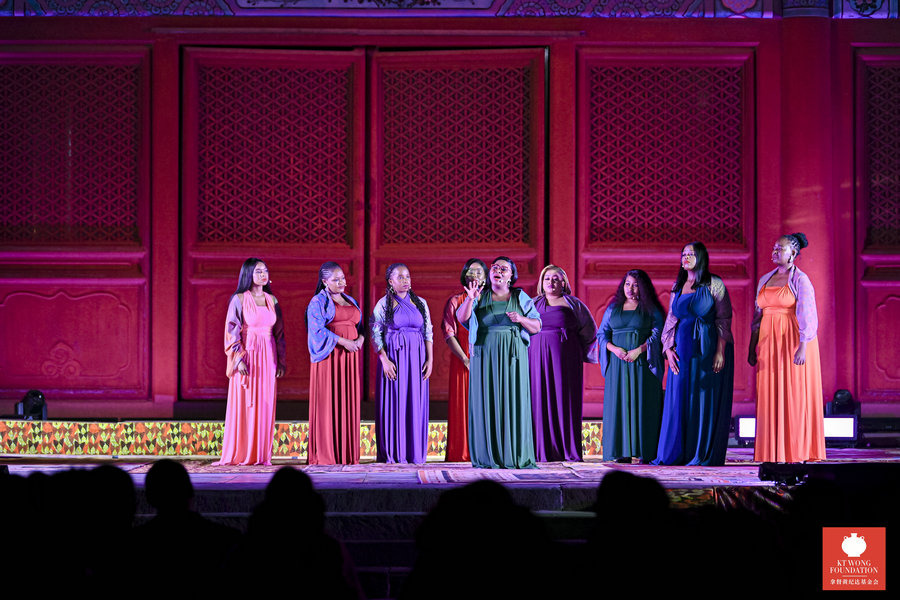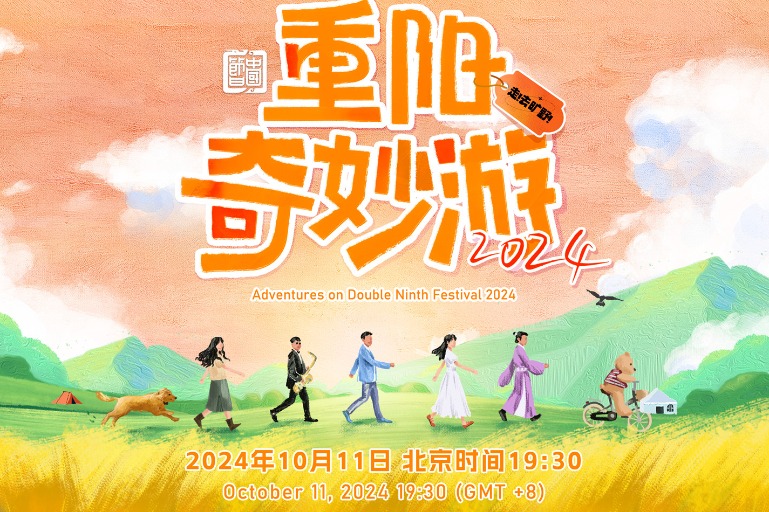Classics of East, West offer treasure trove for modern age

I cracked open a classic while cooped up recently and discovered that The Hobbit, a tale of long-ago Middle Earth, has much in common with an ancient tale about the Middle Kingdom.
Both tales got me thinking about the role of imagination in the modern age.
The Hobbit is inaptly described by Wikipedia as "a children's fantasy novel", an overly simplistic view of a richly complex book that, no matter the reader's age, taps into the imagination and unconscious mind.
The plot of The Hobbit is straightforward enough-a trip to fetch a treasure-but the journey takes many twists and turns.
Through enchanted forests, valleys and cavernous depths, protagonist Bilbo Baggins and his companions on the long adventure to the east of Middle Earth encounter a wicked array of fiends, goblins and other evil characters.
As I turned the pages, I sensed I'd read this before, or something very similar. While I had read the three-part Lord of the Rings nearly three decades ago, I'd not yet read The Hobbit. So why did it seem so familiar?
Then it struck me. This journey to the East in so many ways parallels an even older tale from China: the epic Journey to the West.
Not least of the similarities is that both tales weave the rich fabric of an ancient world that's permeated by a palpable sense of magic.
The authors of these East and West stories-Wu Cheng'en and J.R.R. Tolkien-create wildly imaginative characters, creatures and landscapes, brought to life by vivid language that rings remarkably true.
In addition, both writers depict the quest of reluctant, drafted heroes who become, over the course of challenging treks, utterly devoted to the cause. Both stories also hinge on the assistance of "higher powers"-an array of deities in Journey to the West, and a singular wizard in The Hobbit.
Furthermore, both involve the search for treasures: Sun Wukong, better known as the Monkey King, and his companions travel far and wide, traversing dangerous frontiers, to find and take home sacred scriptures. In The Hobbit, Bilbo and his cohorts, including the wizard Gandalf and several dwarves, undertake a strenuous journey to recover a long-before plundered trove of gems and other glittering wonders.
The nasty creatures that attempt to waylay the heroes are numerous, and their efforts are often thwarted by supernatural powers. Wukong wields a magical cudgel, which he can, according to need, expand until it's the size of a mighty pillar, or minimize and stow secretly inside or behind his ear. Bilbo, on the other hand, possesses by accident (in the revised version) a magic ring that, when slipped onto his finger, renders him invisible-quite handy when trying to elude predators.
Sadly, the prominent role of magic in both adventure stories might make them seem woefully outdated today.
Perhaps the ascent of rational science has distracted us from the time-tested role of imagination. The notion that the world might ever have been, or might still be, in any way magical may strike many as absurd.
But I'd maintain that classic literature, far from being obsolete, offers us today not just an escape from reality-a diversion during a quarantine lockdown, for example-but a powerful way to motivate ourselves, renew our sense of wonder, and reshape the foundations of our world view.
In other words, to become better people, we must first imagine that we indeed can be.
This is the true power of such richly rendered works as Journey to the West and The Hobbit, both of which go beyond fiction and approach mythology. And myth, as the late American professor of literature Joseph Campbell and Swiss psychoanalyst Carl Jung would tell you, casts a much stronger spell than our rational, consensus-based reality may be willing to acknowledge.
Maybe the innovation needed for the challenges ahead will hinge less on a technical, scientific mindset than on a sharpened sense of imagination.
Classic literature, far from being dead, is something we can live as we read it. Inspired by the larger-than-life characters and their heroic deeds, we can see farther and reach higher, growing in the process.
And that sort of alchemy is surely magical.
Contact the writer at jameshealy@chinadaily.com.cn


